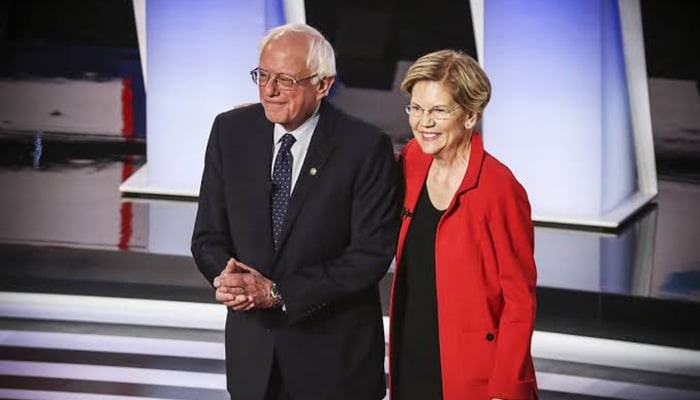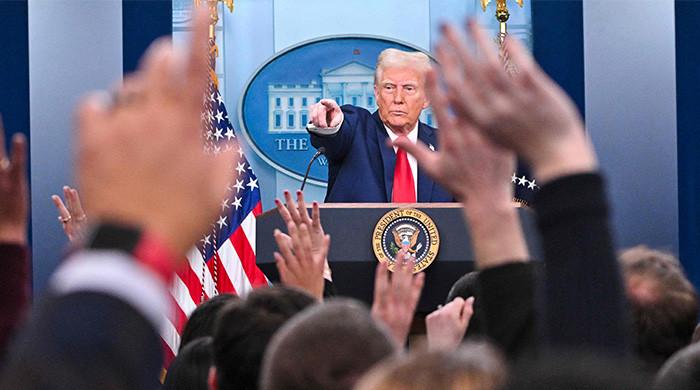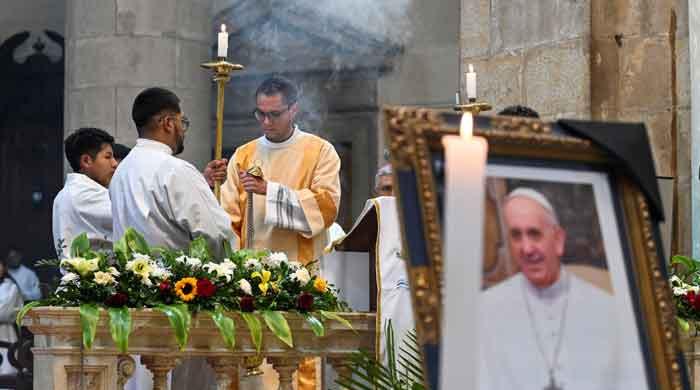US Congress members reject Indian dictation on occupied Kashmir
Indian foreign minister’s decision to cancel meeting with the Congress’s House Committee on Foreign Affairs
December 21, 2019

Senator Bernie Sanders and Senator Elizabeth Warren, two leading Democratic Party candidates for the 2020 US presidential elections; the Co-Chair of the Tom Lantos Human Rights Commission, Congressman Jim McGovern; and a number of other members of the US Congress have expressed reservations about New Delhi trying to silence or dictate the reaction of the US Congress to Indian excesses in occupied Kashmir.
The extraordinary reaction from both houses of US Congress comes after Indian External Affairs Minister Subrahmanyam Jaishankar on Friday cancelled a meeting with the very high profile and important Congress House Committee on Foreign Affairs.
Jaishankar had asked House Foreign Affairs Committee Chairman Rep. Eliot Engel to exclude Congresswoman Pramila Jayapal from the meeting, which Rep. Engel had refused.
Congresswoman Jayapal had moved Resolution 745 in Congress on Dec 6, 2019 against Indian atrocities in occupied Kashmir. Twenty-nine members of the Congress co-sponsored that resolution, which is most likely to be adopted soon.
In the resolution, Congresswoman Jayapal had asked India to lift the communication blockade imposed since Aug 5 in occupied Kashmir, restore all political rights of Kashmiris, release political prisoners and detainees, and allow human rights organizations and journalists access to the territory.
On October 22, 2019, when the subcommittee of the Foreign Affairs Committee on Asia had held a scathing hearing on occupied Kashmir, Congresswoman Jayapal had strongly highlighted the abuse of human rights in Indian-held Kashmir after Aug 5.
Before cancelling his important meeting with the House Committee on Foreign Affairs, Jaishankar had commented that Congresswoman Jayapal “did not understand” the occupied Kashmir issue and he was not interested in meeting her.
Reacting to the Indian minister’s decision, Senator Bernie Sanders remarked: “Shutting out US lawmakers who are standing up for human rights is what we expect from authoritarian regimes—not the government of India. Congresswoman Jayapal must not be excluded for being outspoken about the unacceptable crackdown on Kashmiris and Muslims.”
Another Democratic Party candidate for the US presidency, Senator Elizabeth Warren, wrote: “Efforts to silence Pramila Jayapal are deeply troubling. The US and India have an important partnership — but our partnership can only succeed if it is rooted in honest dialogue and shared respect for religious pluralism, democracy, and human rights.”
Rep Jim McGovern, the co-chair of the Tom Lantos Human Rights Commission, commented: “No foreign government should dictate who is or is not allowed into meetings on Capitol Hill. I stand with Rep. Jayapal and applaud Rep Engel (chairman US House Foreign Relations Committee) and others for doing the same.
Senator Kamala Harris, who till recently was a presidential candidate, remarked: “It’s wrong for any foreign government to tell Congress what members are allowed in meetings on Capitol Hill. I stand with Rep. Jayapal and I'm glad her colleagues in the House did too”.
Congresswoman Rashida Tlaib reacted: “That's because they [Indian officials] know they are violating international human rights laws that is leading to innocent lives being lost, and causing irreparable harm to children in Kashmir. Thank you Rep. Pramila Jayapal for speaking up for Kashmiris."
The reaction from Congresswoman Ilhan Omar was: “True democracies tolerate dissent. Thank you Rep. Jayapal for being a moral voice on this and so many issues before us. Just like students across India are holding the Indian government accountable, we need to continue to do so in Congress!"
Rep. Jayapal remarked, “The cancellation of this meeting was deeply disturbing. It only furthers the idea that the Indian government isn’t willing to listen to any dissent at all”.
The Indian government is also under pressure from US lawmakers on the recently passed Citizenship Amendment Act, which has sparked widespread protests and resulted in 17 deaths.
The US Ambassador at Large for International Religious Freedom, Ambassador Sam Brownback, recently stated that the US is concerned about the implications of the Indian Citizenship Amendment Act and hoped that Indian government would abide by its constitutional commitments, including religious freedom.
The US Congress House Foreign Affairs Committee has separately stated that any religious test for citizenship undermines the most basic democratic tenet of religious pluralism.
US Assistant Secretary of State for Democracy and Human Rights Robert Destro has also expressed severe reservations about the law in a recent congressional hearing.
Likewise, the US Commission on International Religious Freedom has asked for sanctions against Indian Home Minister Amit Shah (widely perceived to be the architect of the bill) and others who moved the law.
Rep. Rashida Tlaib had also filed Resolution 724 in the US Congress on Nov 21, 2019 which, in addition to seeking an end to human rights violations, reaffirms Kashmiris’ right to self-determination.
Indian External Affairs Minister Mr. Jaishankar had spent a week in October trying to win over US legislators and think tanks on the BJP government’s policy on occupied Kashmir.
During his recent US visit for 2+2 ministerial meetings, Jaishankar had again tried to convince US legislators about New Delhi’s occupied Kashmir and citizenship policies.
However, the minister ended up in an unexpected spat with the House Committee on Foreign Affairs, which has oversight on US State Department and its policies. This is likely to further weaken India’s case on occupied Kashmir and citizenship legislation among US lawmakers and put pressure on the US State Department to take a stronger position to address these issues. which concern South Asian and global peace and development.











